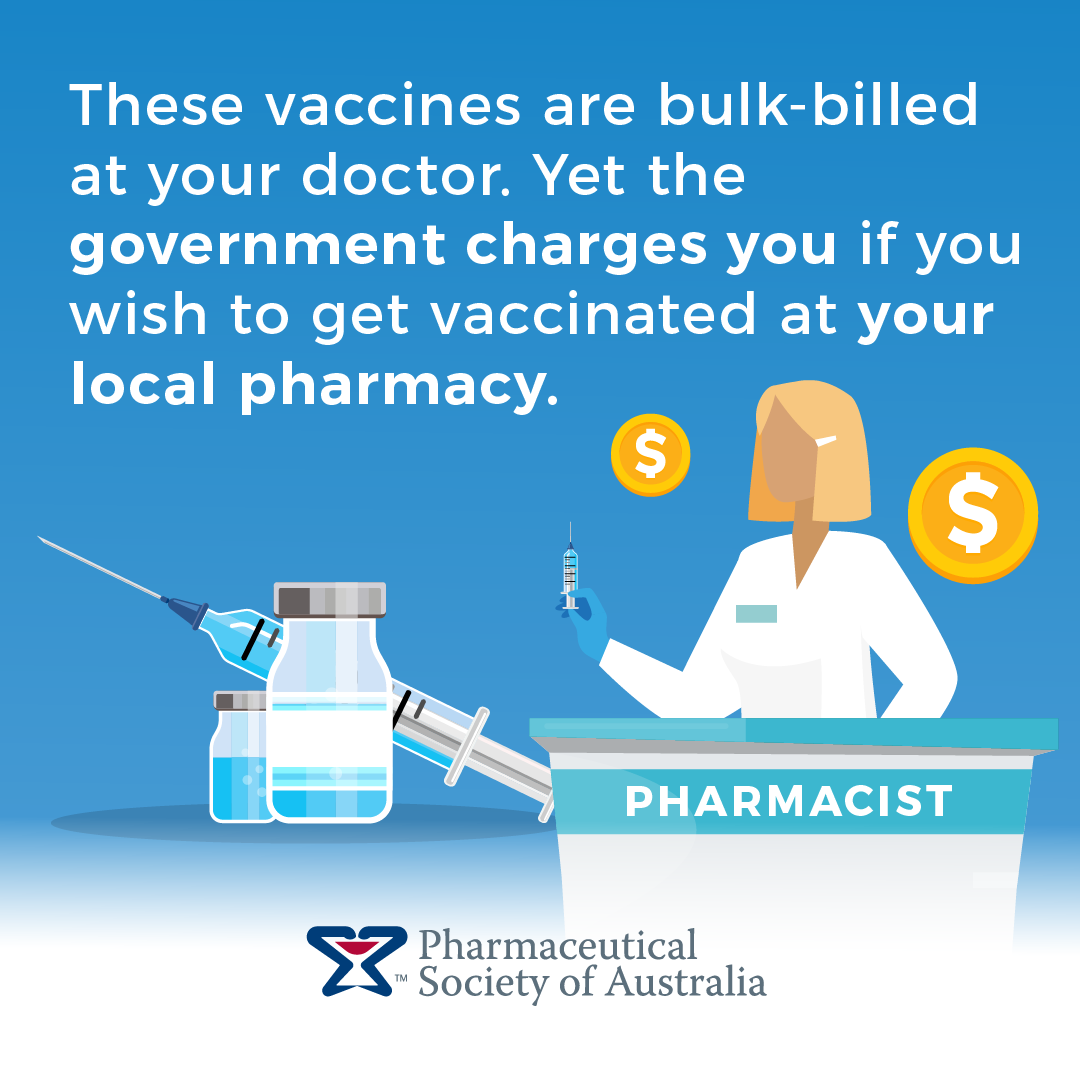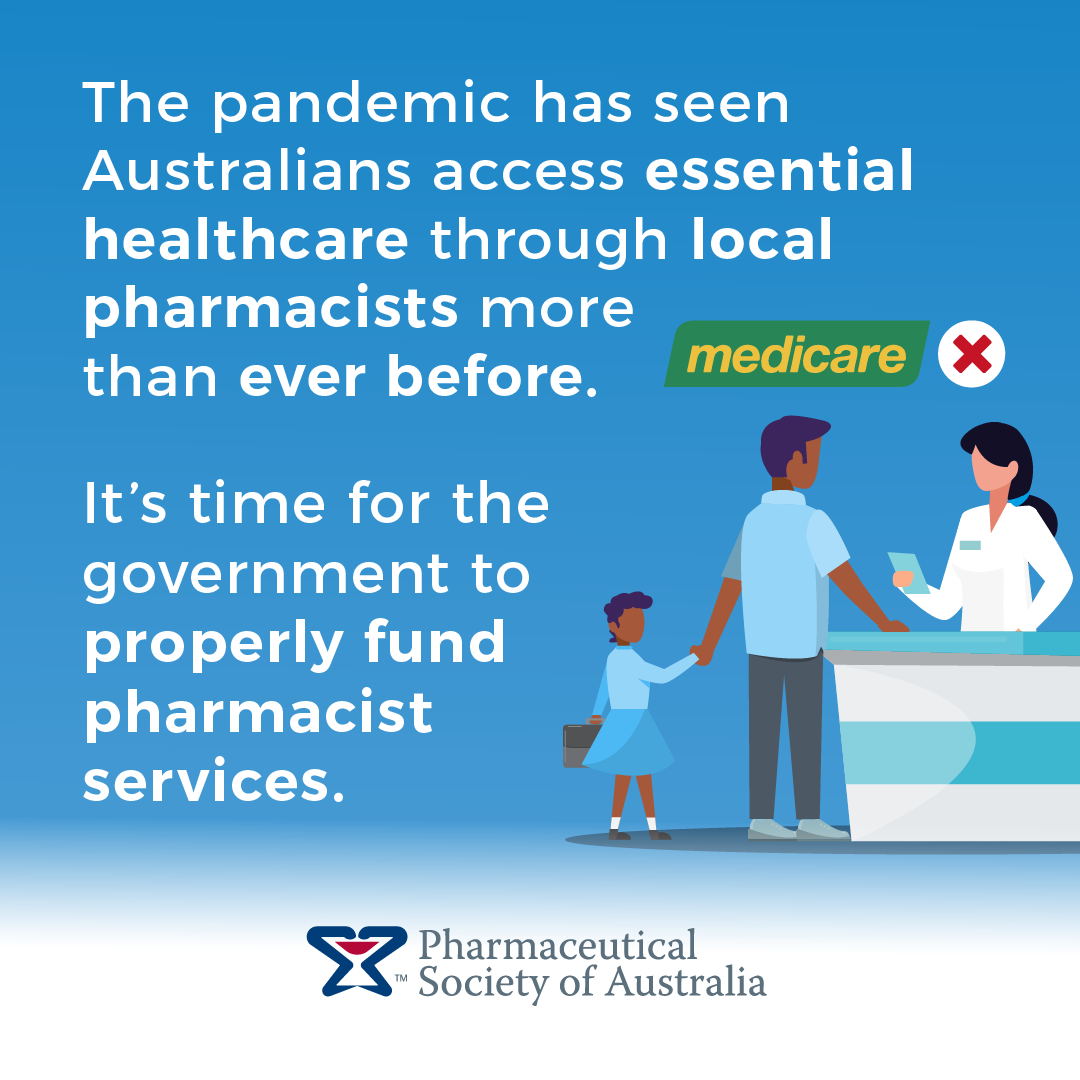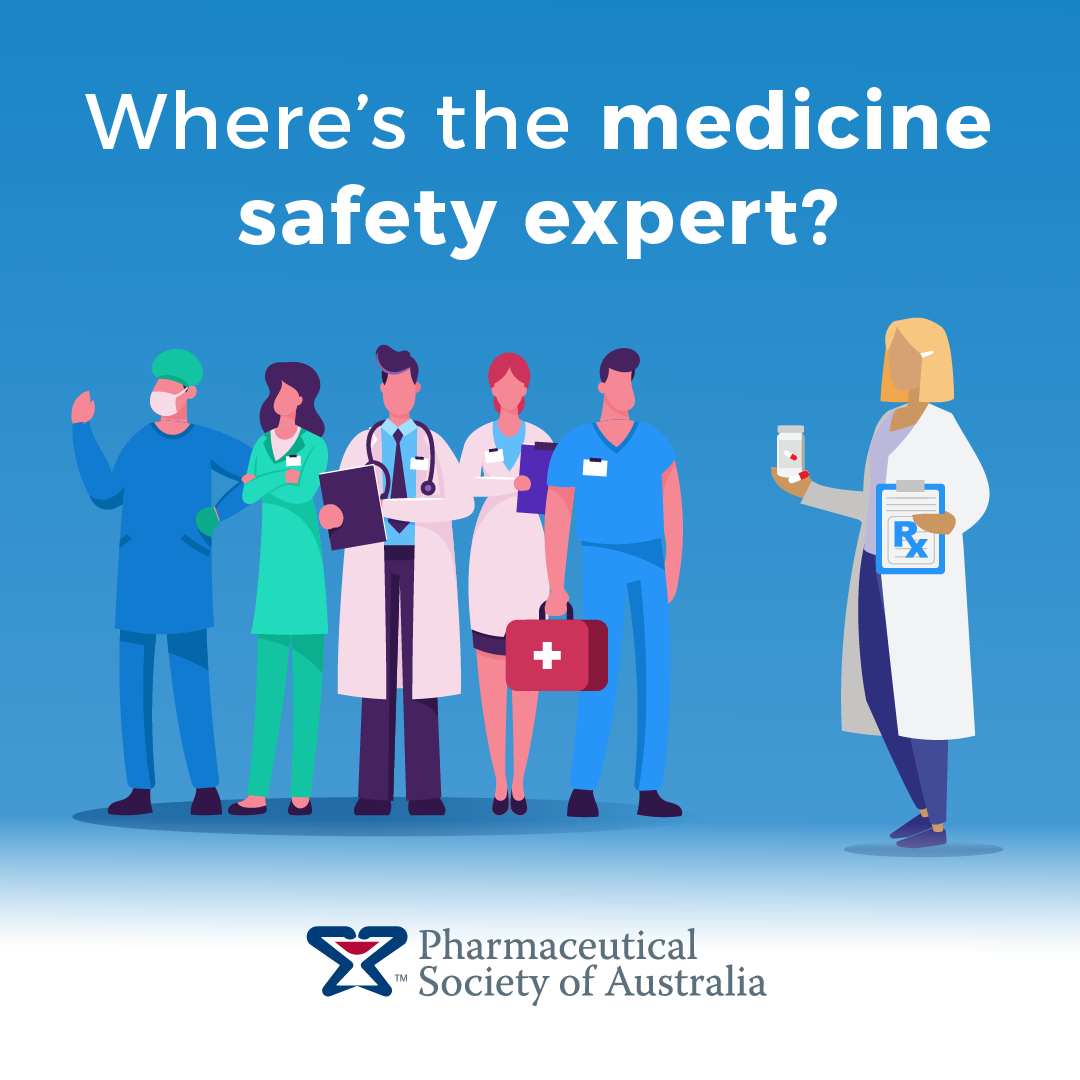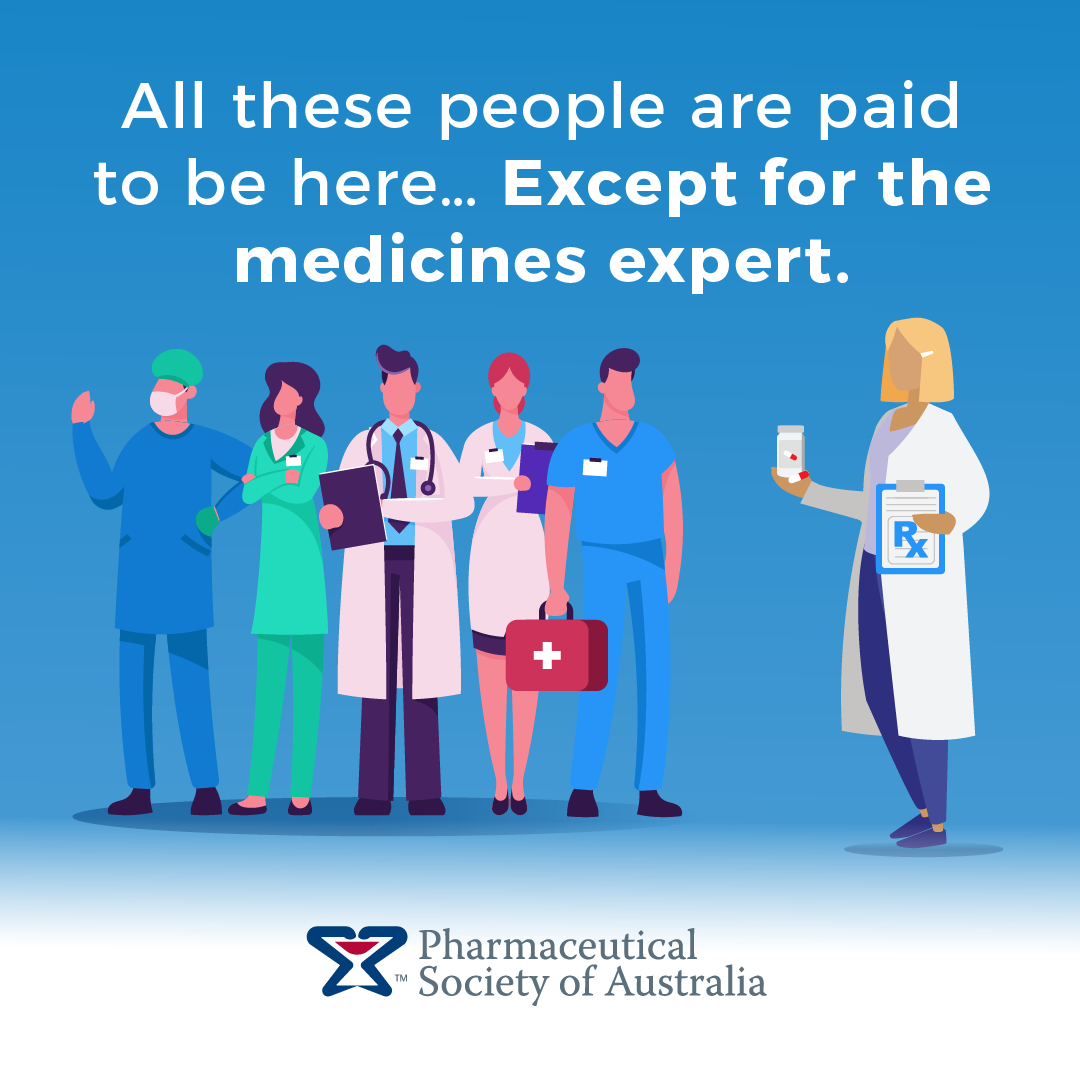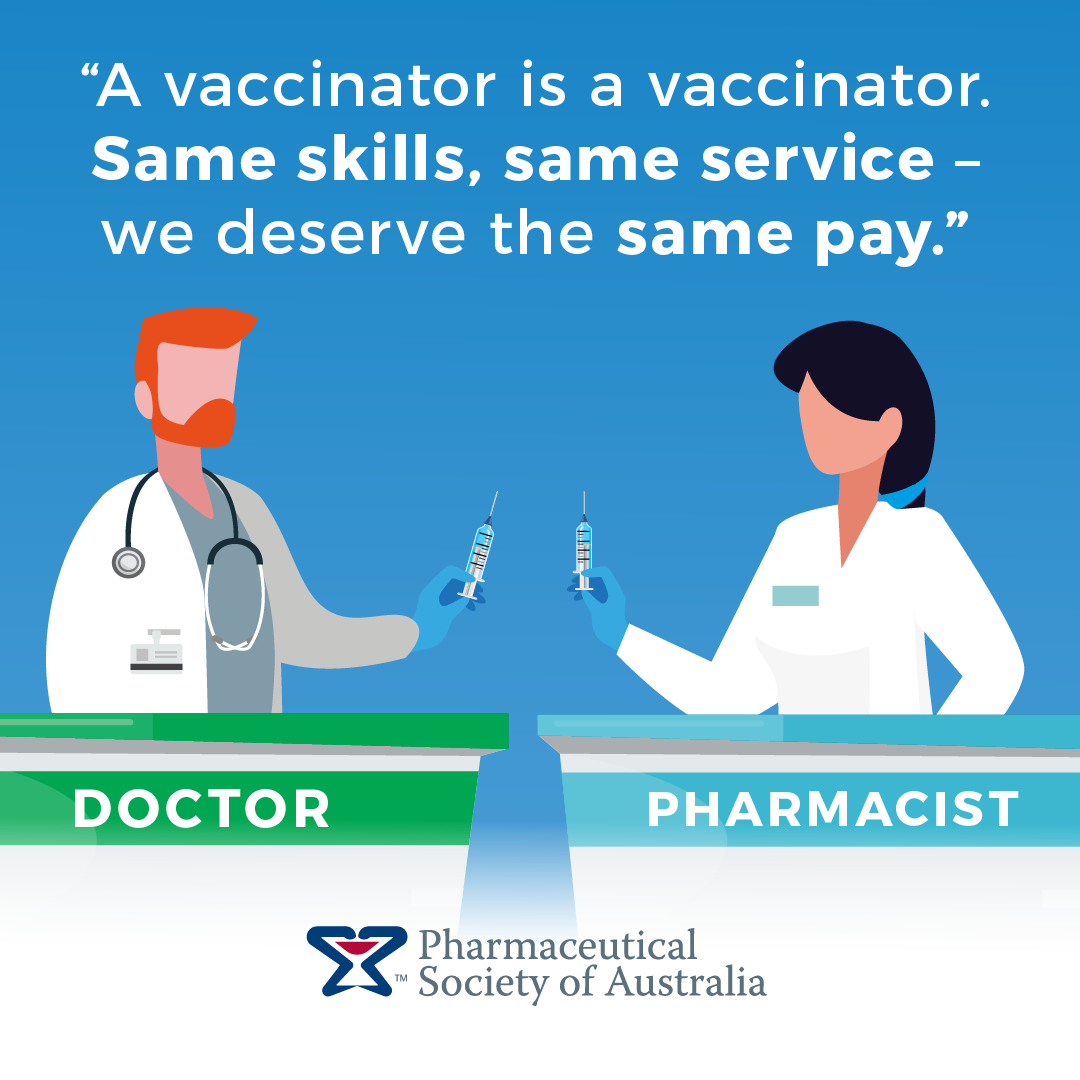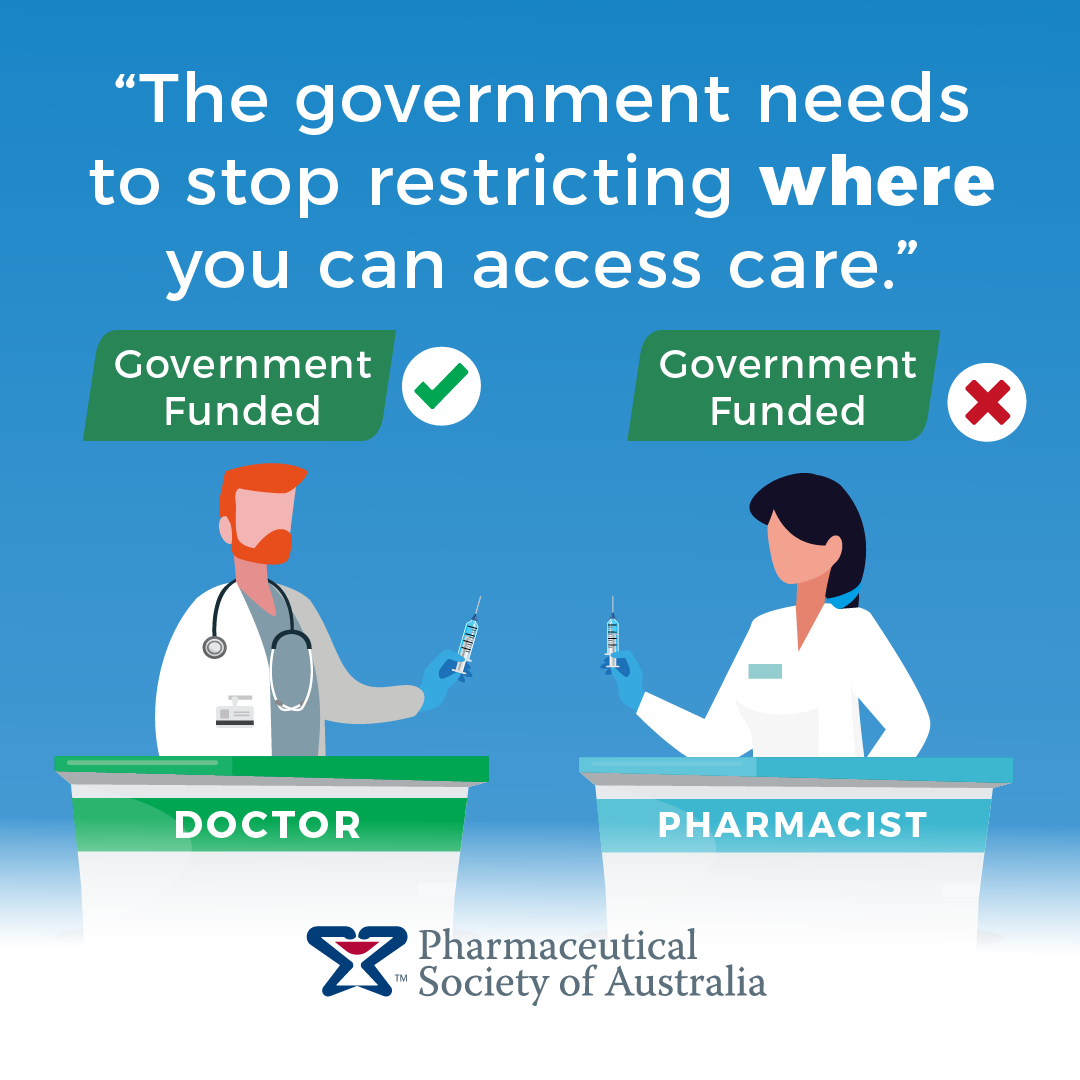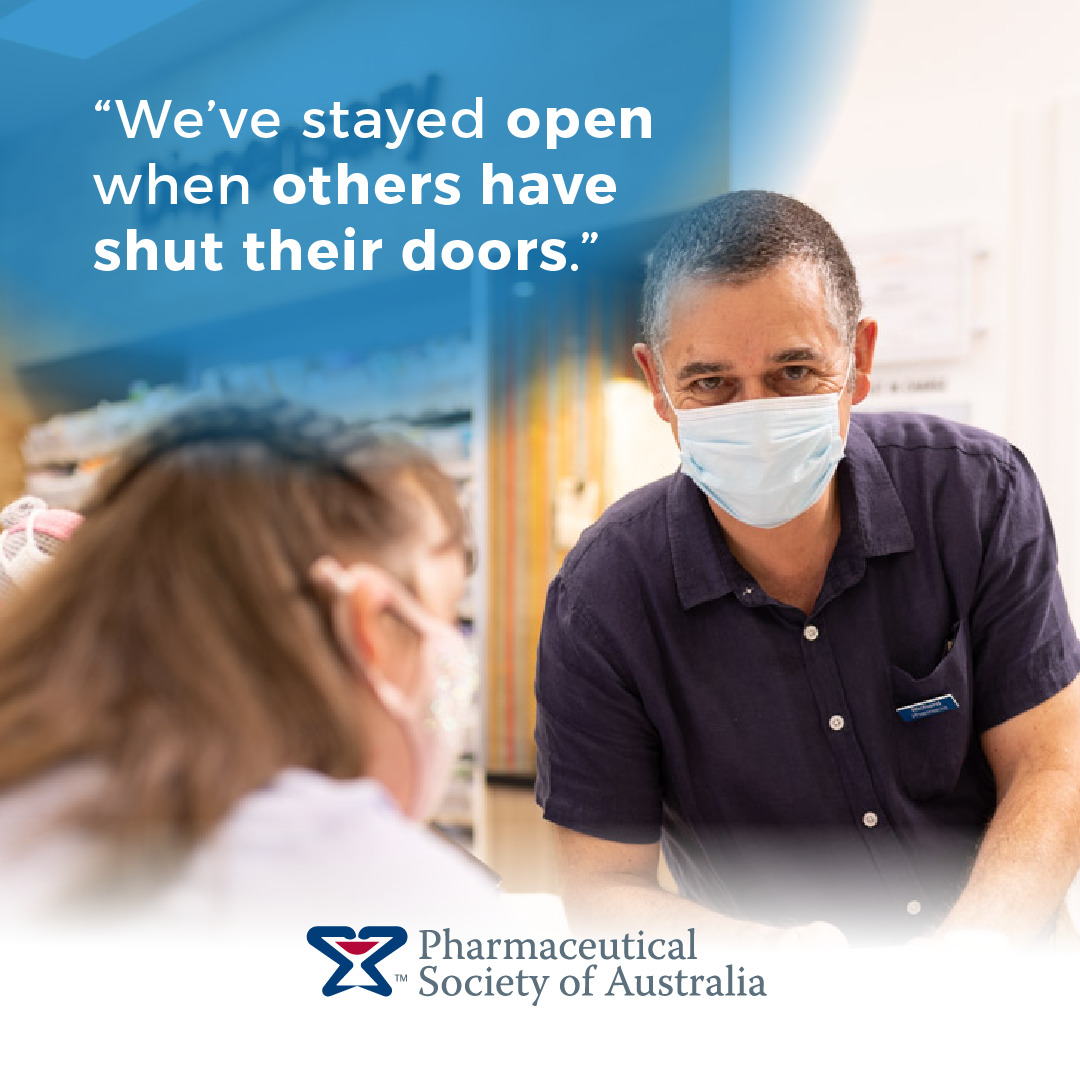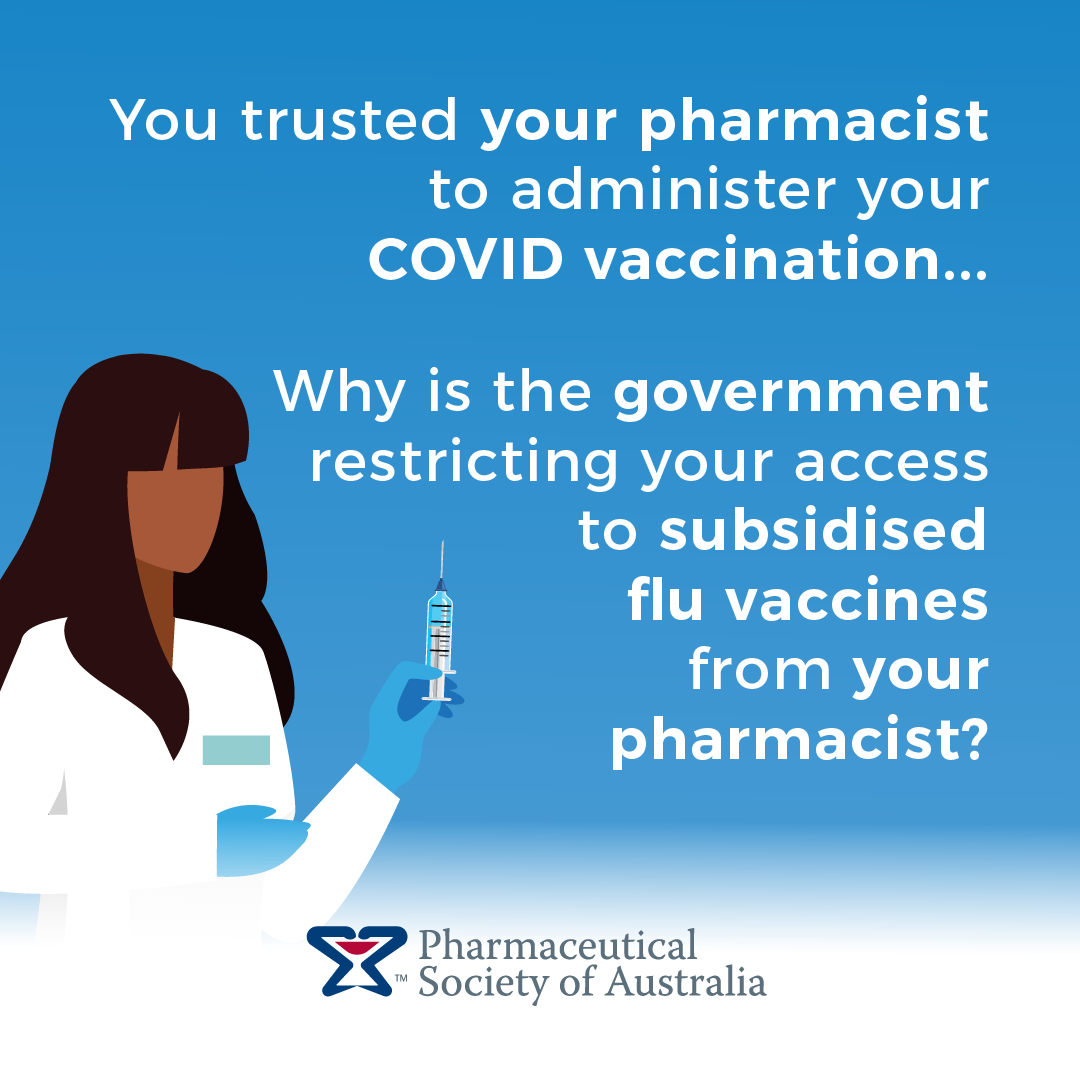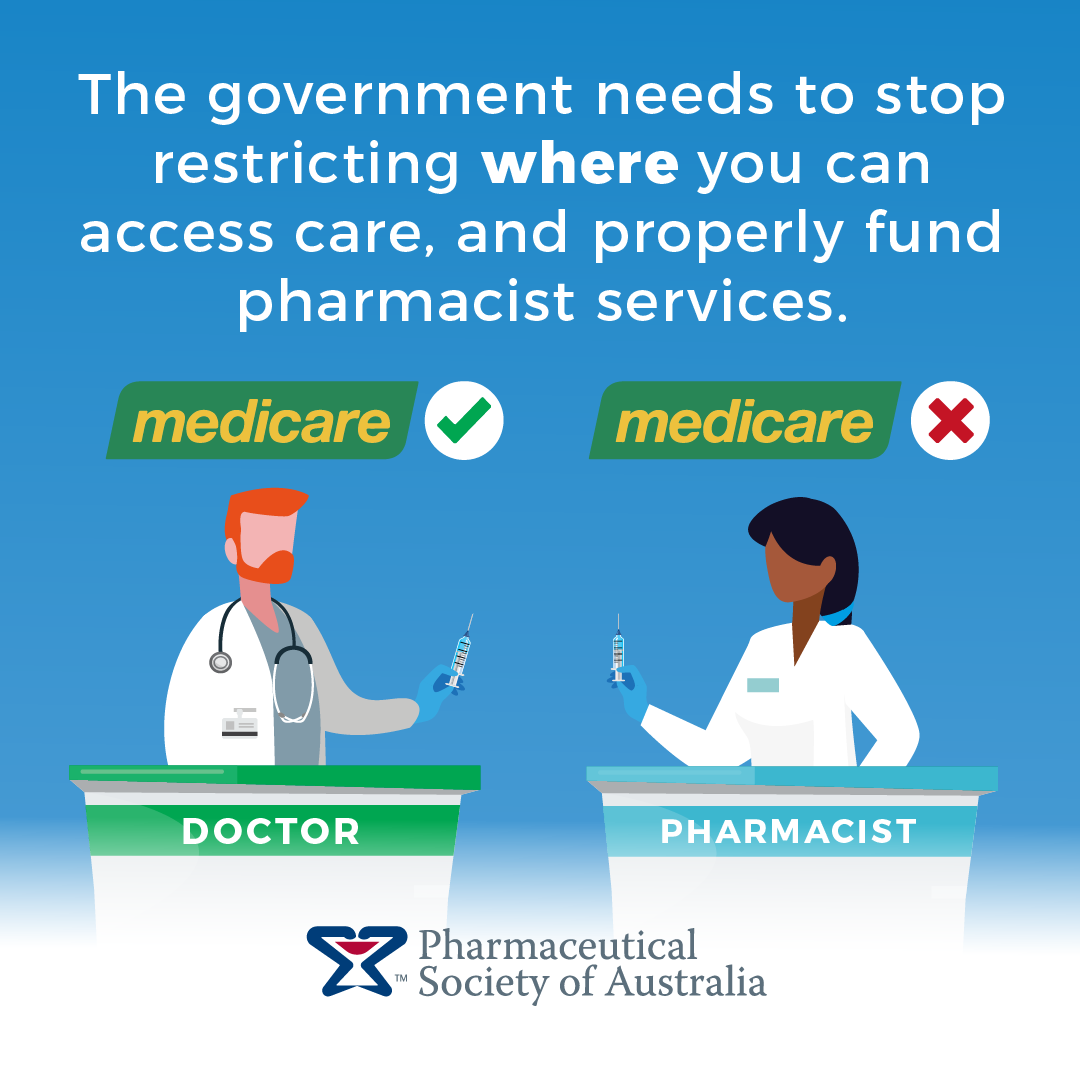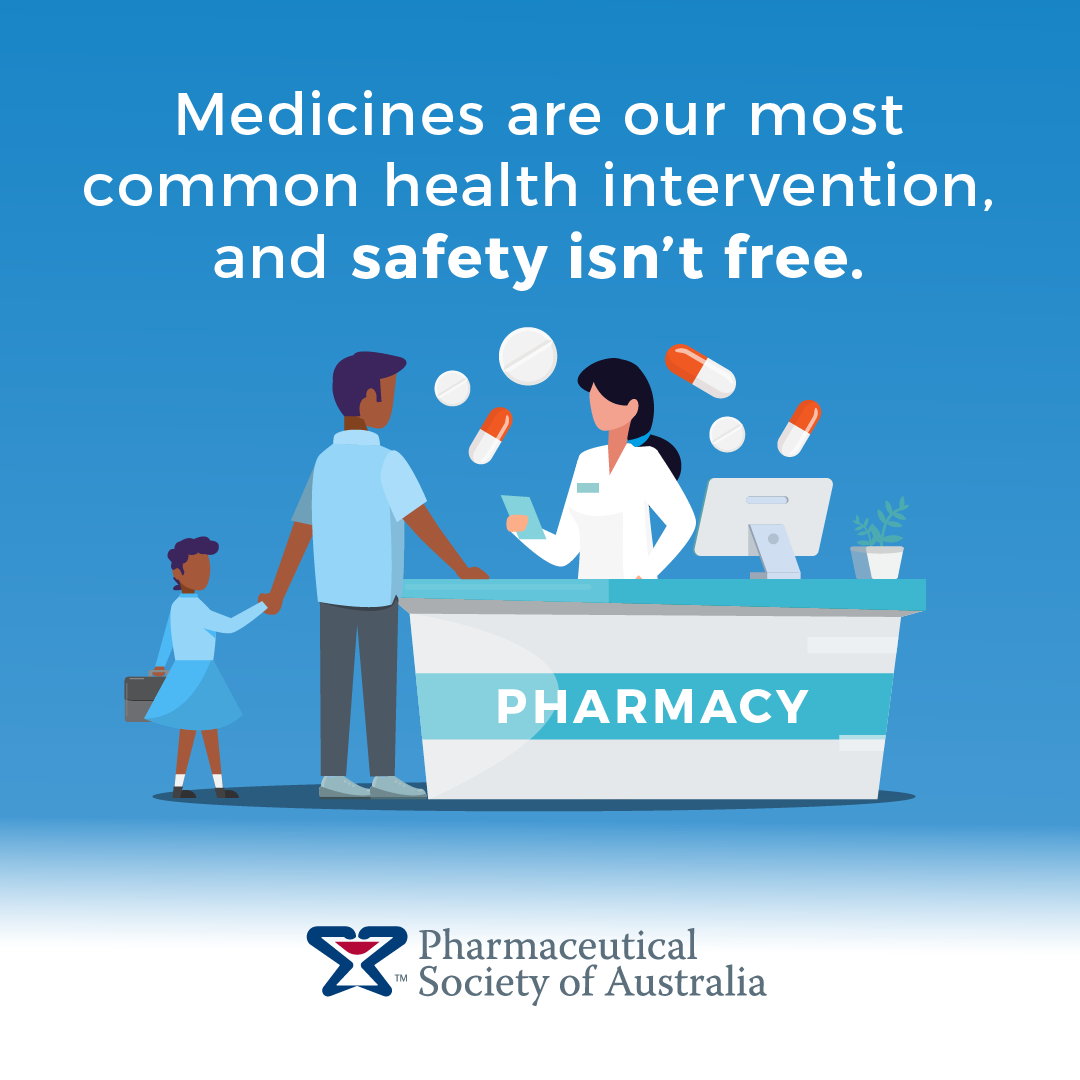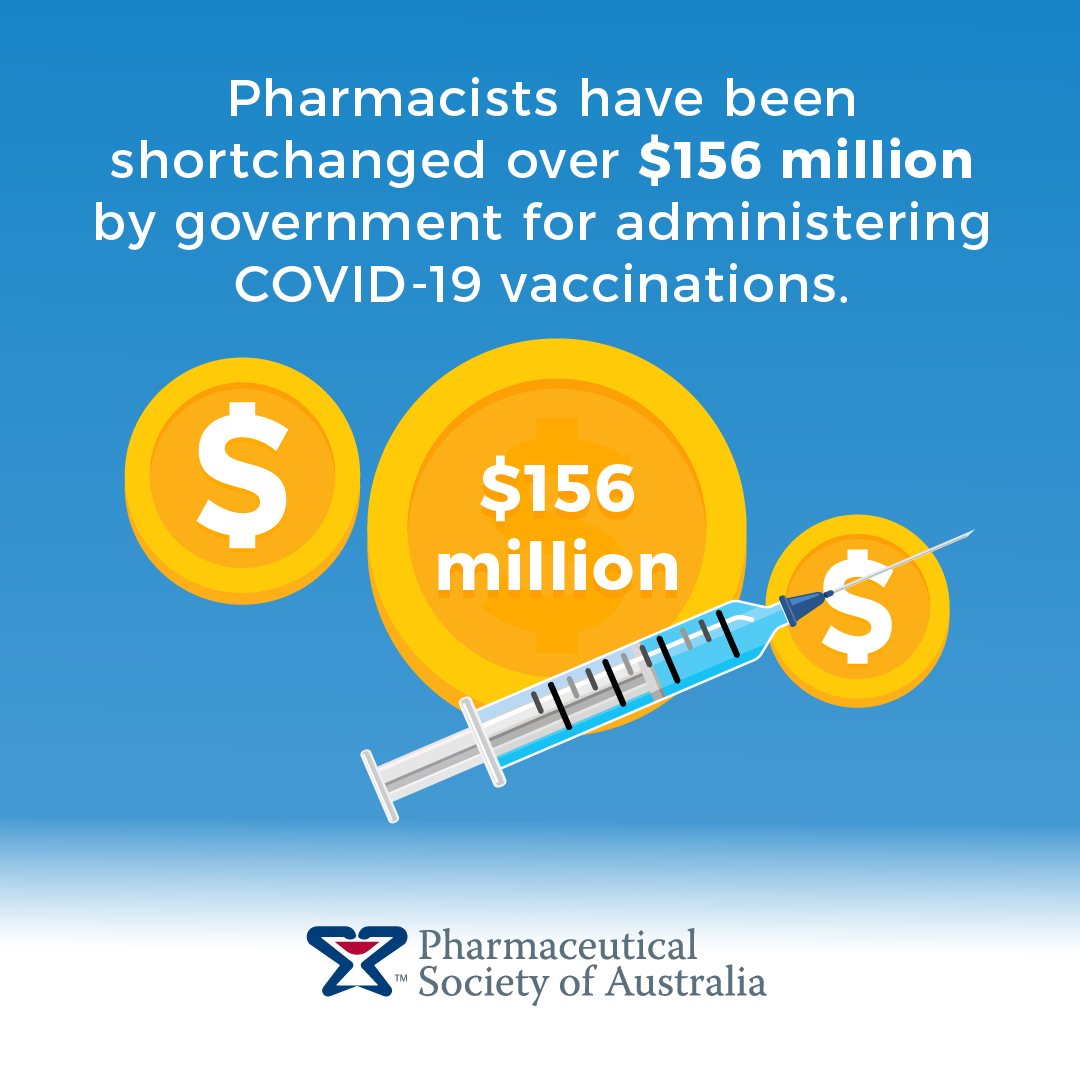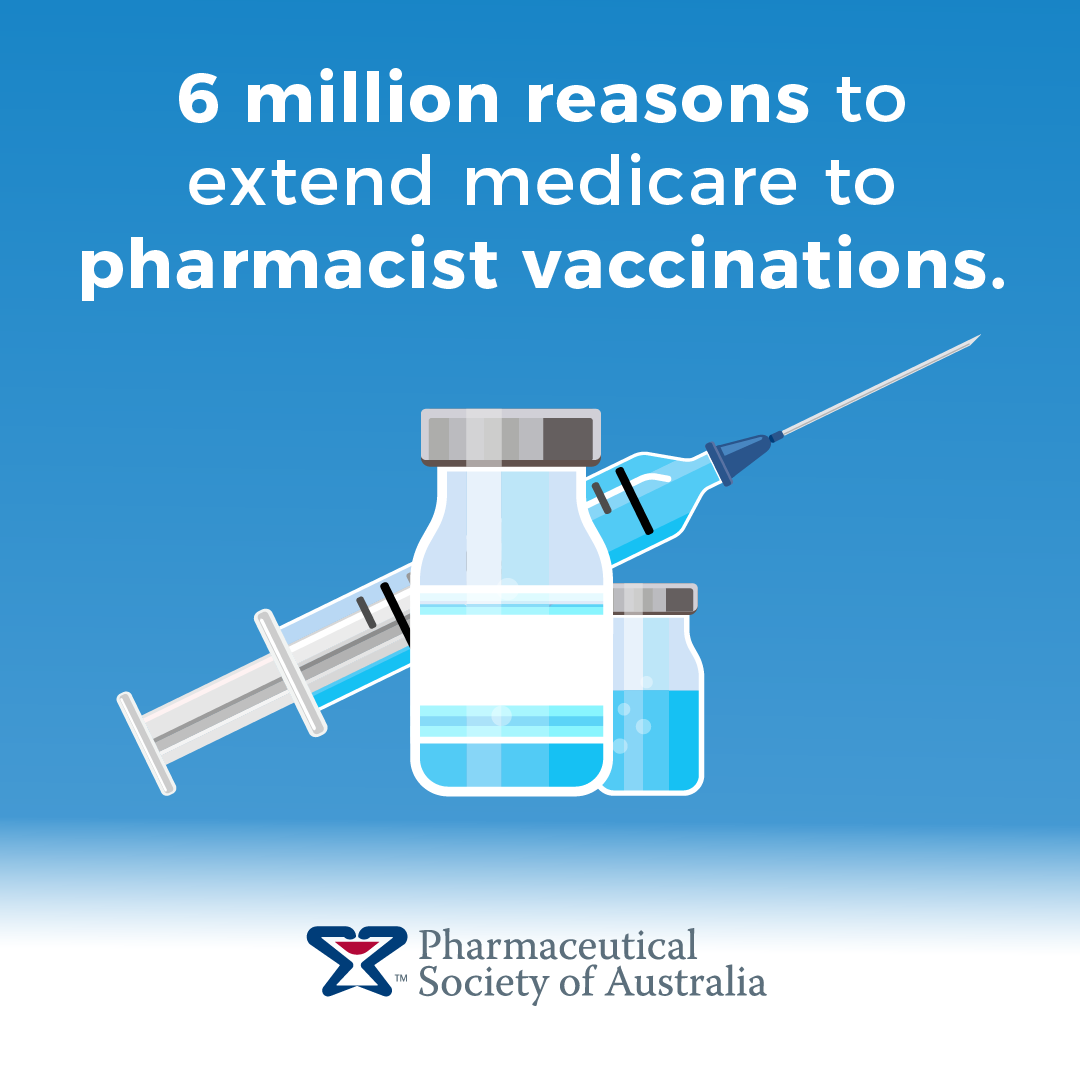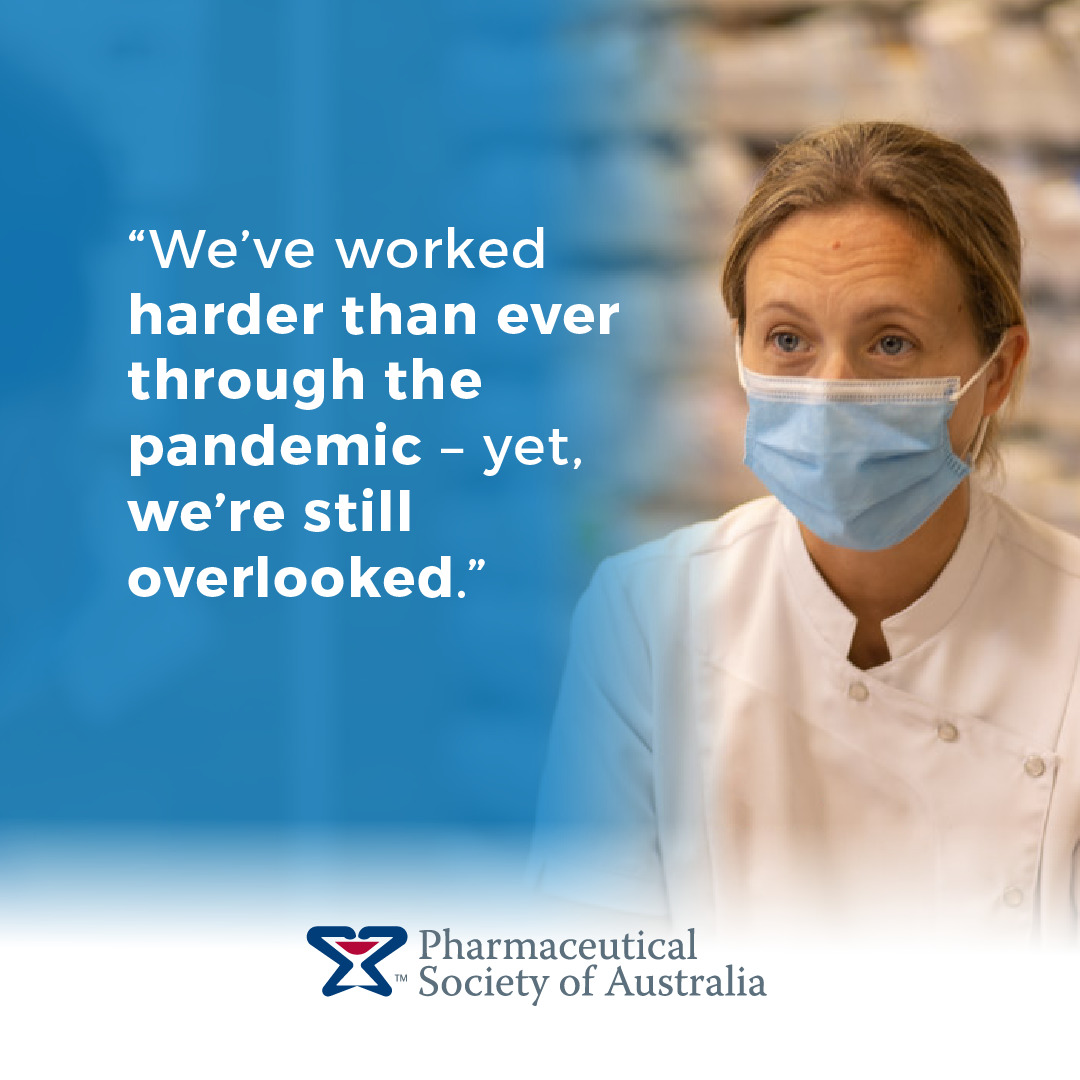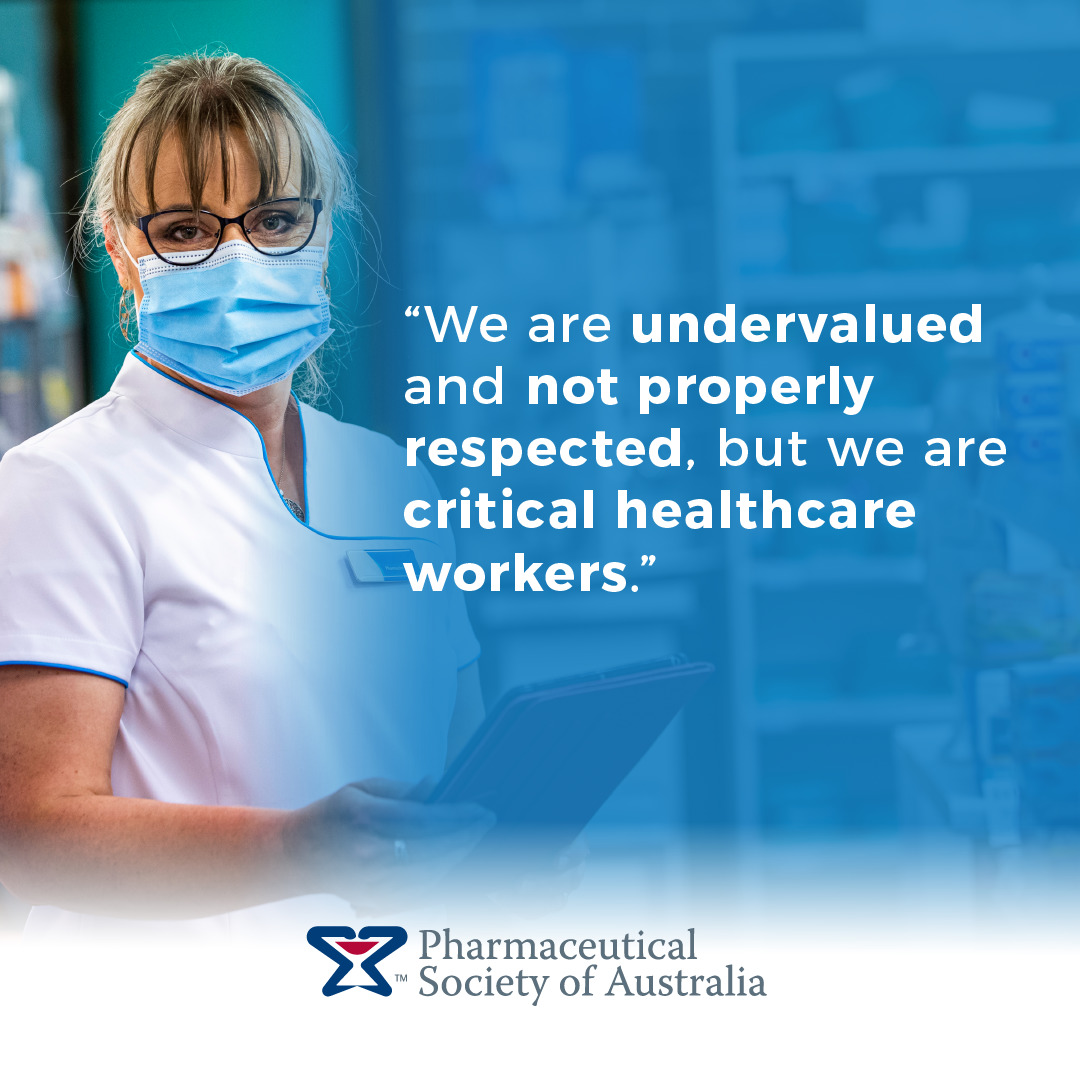Actioncentre_Social media
Below are some social media tile for you to download and use. There is some sample text below you may wish to use on social media. You can include the website link https://www.psa.org.au/remuneration and don’t forget to tag PSA National and your local politician.
How can I get involved?
You can get involved by sharing these tiles on your social media (below) and either using your own text or the sample text supplied below.
Below is some sample text you may wish to use on social media. You can include the website link https://www.psa.org.au/remuneration and don’t forget to tag PSA National and your local politician.
Working Conditions and Remuneration
- Pharmacists must be recognised as frontline health professionals, and deserve to be remunerated accordingly.
- Pharmacists, like many healthcare workers, have had no reprieve throughout the pandemic. We’ve stayed open when many primary healthcare providers closed their doors. Yet, unfair and inequitable pay discrepancies continue to exist. This needs to be corrected.
- It’s simple, pharmacists must be paid at the same rate as any other professional for providing the same service!
Case Conferencing
- Pharmacists are the only allied health provider who is not remunerated for case conferencing – this is ludicrous when you consider the essential role we play as medicine safety experts.
- The government must address medicine safety concerns and the unfair and inequitable pay disparity faced by pharmacists, by introducing an MBS rebate for pharmacists who participate in case conferencing.
- Pharmacists are medicine experts and custodians of medicine safety, yet we are expected to participate in case conferencing without being paid for doing so.
COVID Vaccines
- The pandemic has pushed many in the profession to the brink – RAT shortages, long hours, staff shortages, abuse from patients, the risk of bring the disease home to family. At the very least, we deserve equal remuneration for administering COVID-19 vaccines.
- Many friends and colleagues have gone above and beyond, extending hours to open up more COVID-19 vaccination appointments. It’s not fair that we’re being paid less than half that of other vaccinators.
- Pharmacists have now delivered over 6 million COVID-19 vaccines – going above and beyond to help protect our communities. By paying other providers more, the government has short-changed us by more than $156 million. How is that fair?
- The Federal Government’s refusal to fairly remunerate pharmacists for administering COVID-19 booster vaccines is putting the entire booster program in jeopardy. The service is barely sustainable for us on the frontline!
